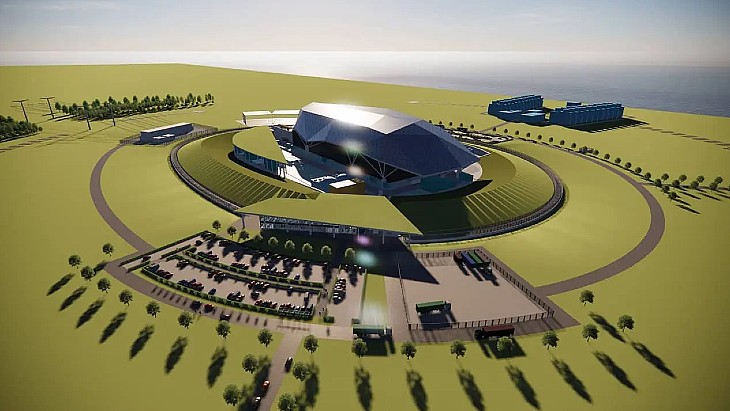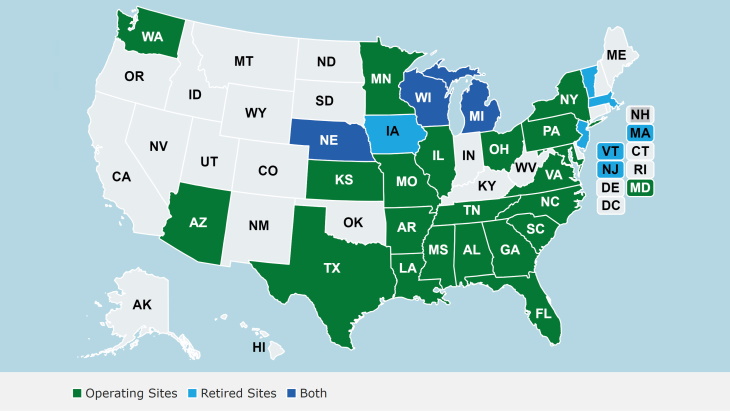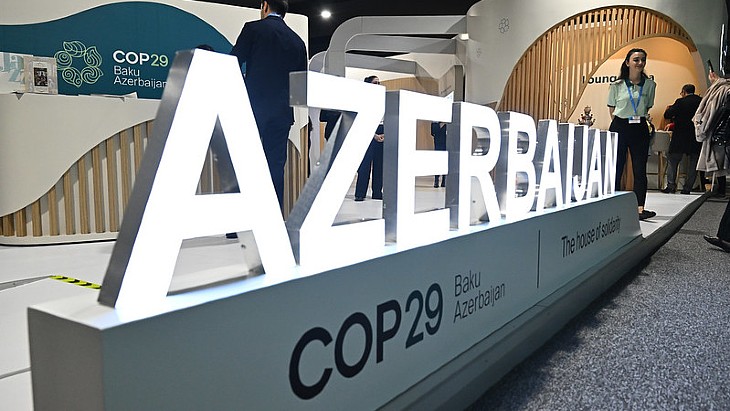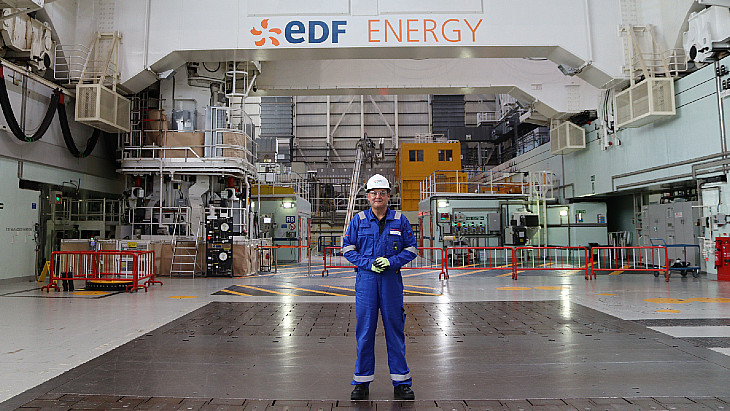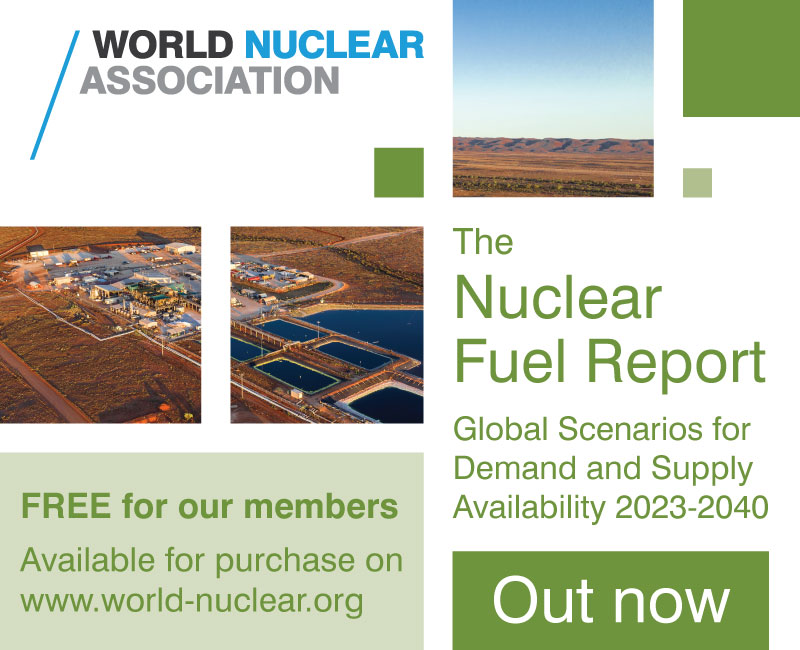Foundation in place for first Hinkley Point C unit
.jpg)
EDF Energy said the final 9000 cubic metres of concrete was the largest concrete pour in the UK, beating a record set during the construction of the Shard skyscraper in London. Reinforced with 5000 tonnes of steel, the base has been under construction by the UK-French joint venture of Bouygues-Laing O'Rourke for six months.
"The completion of the base for the first reactor, known as 'J-zero', means that the construction of the nuclear buildings above ground can now begin in earnest," EDF Energy said.
Construction of the second of Hinkley Point C's two units is well underway, the company noted, and is already showing the improved efficiency possible when an identical design is repeated. "Good progress and efficiency improvements mean that the second Hinkley Point C reactor will hit its own J-zero moment in June 2020," it said.
Under a deal agreed in October 2015, China General Nuclear took a 33.5% stake in EDF Energy's project to construct Hinkley Point C. It will be the first new nuclear power station to be built in the UK in over 20 years and will provide about 7% of the country's electricity. The first of its two EPR reactors is scheduled to start up at the end of 2025.
Yesterday, Energy and Clean Growth Minister Chris Skidmore signed into law legislation requiring the UK to bring all its greenhouse gas emissions to net-zero by 2050, compared with the previous target of at least 80% reduction from 1990 levels.
"Hinkley Point C's reliable low-carbon electricity will play a vital role in helping the UK tackle the climate change crisis," EDF Energy said. "With a large expansion of renewables, it will make 'net-zero' emissions possible and help the UK have an affordable and secure electricity supply. Innovation and the transfer of design, skills and experience from Hinkley Point C mean the proposed near-identical project at Sizewell C can be significantly cheaper to build and finance, and that subsequent projects at Bradwell B and elsewhere will also benefit."
The UK's Minister for Nuclear at the Department for Business Energy and Industrial Strategy, Andrew Stephenson, visited the Hinkley Point C construction site today. He said: "This is a huge achievement for Hinkley Point C and a major milestone for the UK's nuclear new-build industry, which - as a low-carbon electricity source - is key to meeting our ambitious target of net-zero emissions by 2050."
Tom Greatrex, chief executive of the UK's Nuclear Industry Association, said: "With all but one of our current fleet, which generates 20% of our electricity, due to retire by 2030, we need new capacity for clean, secure and reliable power. As Hinkley Point C is demonstrating, new nuclear plants create thousands of jobs both in construction and operation, provide security of supply and stimulate clean growth across the country, benefitting us all."
In an letter to Business and Energy Secretary Greg Clark, the Confederation of British Industry (CBI) said the UK should build new nuclear power stations and scale up carbon capture technology and infrastructure to reach the government's target of net-zero greenhouse gas emissions by 2050. The industry organisation set out a series of priorities to decarbonise the UK economy and called on the government to use a forthcoming Energy White Paper to give more clarity on its vision.
"The CBI sees an important role for new nuclear power as part of a diverse, low-carbon energy mix," says the letter, signed by CBI Director General Carolyn Fairbairn. "We support efforts to build new nuclear power at the right price and affordability for consumers and urge the government to explore proposals for financing mechanisms such as the regulated Asset Base model. Doing so in a timely way can maximise the potential cost savings of follow-on projects to Hinkley Point C."
The CBI called on the government also to consider support for innovative nuclear technologies, such as small modular reactors. "We believe such measures could encourage both foreign and domestic capital investment into new nuclear projects which can help us meet the UK's carbon reduction targets while benefitting from the industrial and economic benefits of a domestic nuclear construction industry," it said.
_92619.jpg)
_84504.jpg)
